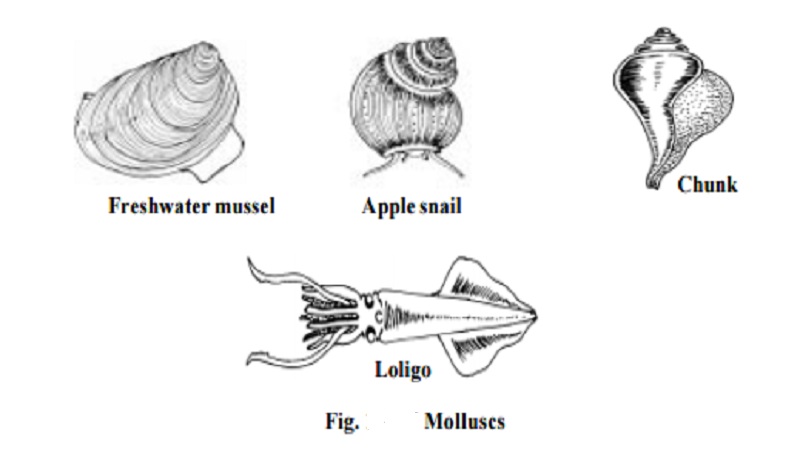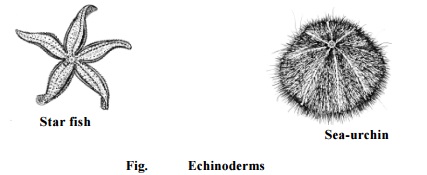Chapter: BIOLOGY (ZOOLOGY) Standard XI first year 11th text book Assignment topics question and answer Explanation Definition
Phylum Mollusca and Phylum Echinodermata

Phylum Mollusca :-
It is a very successful and diverse group of animals. Considered
to be the second largest group of animals with regard to species number. These
are soft bodied animals without segmentation. The body is divided into head, muscular
foot and visceral mass. The body is covered by a mantle and
a shell.
Respiration happens through gills (ctinidia)
in the mantle cavity. The most common larva is a trochophore larva.
There are seven
classes of which three are more prominent.
Class Pelecypoda or Bivalvia :- These are
aquatic molluscs having bivalves. They burrow in mud and sand . The
body is laterally compressed . (eg) mussels, clams, oysters.
Class Gastropoda :- These are either aquatic or terrestrial
molluscs. They posses a spiral shell.
The foot is large and flat. They have well
developed head with tentacles and eyes. (eg) snails, slugs,
and limpets.
Class Cephalopoda :- These are mostly marine. They are adapted
for swimming. The foot is modified into eight to ten long tentacles
in the head region. The shell is either internal or absent. (eg) Octopus, Loligo, Sepia.
Class Pelecypoda or Bivalvia :-
These are aquatic molluscs having bivalves. They burrow in mud and
sand . The body is laterally compressed . (eg) mussels, clams, oysters.
Phylum Echinodermata :-
These are marine organisms. While the adults are radially
symmetrical the larvae remain bilaterally symmetrical. The mouth is on the
lower surface. They have a water vascular system with tube
feet. eg. star fishes, brittle stars, sea
urchins and sea-cucumbers.

Related Topics